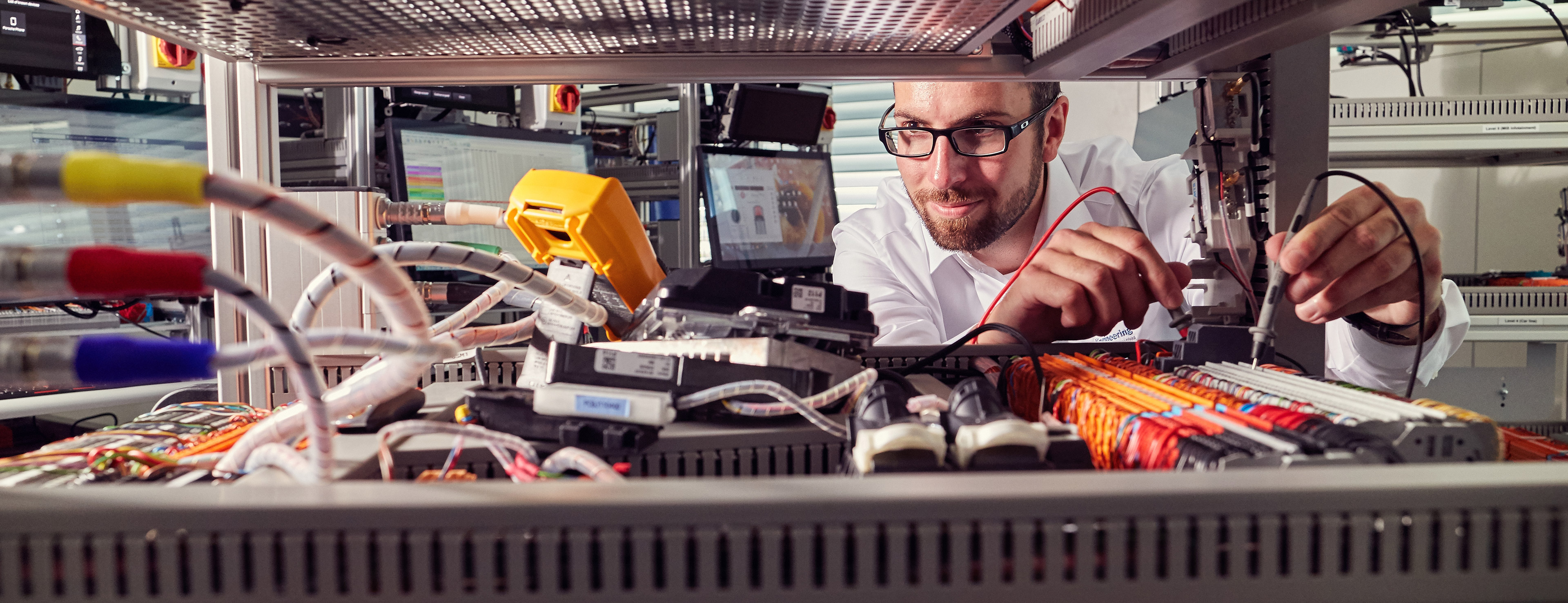Czech Republic
Porsche Engineering Services, s.r.o., the Czech branch of the international engineering services provider Porsche Engineering, handles a variety of vehicle-related engineering topics, such as function and software development, electronics development, integration and testing, the development of car body structures, chassis components and concepts, and complete vehicle systems. These activities represent a significant contribution to Porsche’s internationally integrated engineering services and cover a wide range of development activities and know-how, primarily in the areas of electromobility, car connectivity systems, advanced driver assistance systems, and vehicle structures. Porsche Engineering Services, s.r.o., currently operates at two locations: Prague and Ostrava.
Locations
Services
College programs
University cooperation
Dr. Ing. h.c. F. Porsche AG has been cooperating with the CTU’s faculty for mechanical engineering in Prague since 1996. In 2001 this successful cooperation between industry and academia led to the foundation of Porsche Engineering Services, s.r.o., a subsidiary of Porsche Engineering Group GmbH. Porsche Engineering Services, s.r.o., is constantly expanding its field of expertise and thus broadened its cooperation with the CTU by initiating a collaboration with the faculty of electrical engineering in 2011 and the Czech Institute for Informatics, Robotics and Cybernetics (CIIRC) in 2016. This cooperation includes supervision of master’s and doctoral theses, lectures by Porsche Engineering experts at the CTU, and collaboration on R&D projects in the fields of big data processing, autonomous driving, and advanced control algorithms.
Student contest
Porsche Engineering in the Czech Republic organizes a student contest at both locations, Prague and Ostrava, every year. Contestants are in for a unique challenge, exciting teamwork, and special prizes, and we look forward to their participation. The theme of the past two years has been autonomous driving. This contest is an opportunity to bring one’s ideas to life and be involved in a project on the latest trends in the automotive industry.
Entry opportunities for students
Gain practical experience as an intern, student trainee, or a postgraduate student at Porsche Engineering. Current openings are listed here:








![[+]](https://www.porscheengineering.com/filestore/image/multimedia/none/peg-locations-cz-aca-uni-teaser/normal/81879793-0464-11ea-80c6-005056bbdc38/porsche-normal.jpg)
![[+]](https://www.porscheengineering.com/filestore/image/multimedia/none/peg-locations%C2%B520-cz-aca-contest-teaser/normal/9b291845-0464-11ea-80c6-005056bbdc38/porsche-normal.jpg)
![[+]](https://www.porscheengineering.com/filestore/image/multimedia/none/peg-locations-cz-aca-entry-teaser/normal/075b261e-046c-11ea-80c6-005056bbdc38/porsche-normal.jpg)

